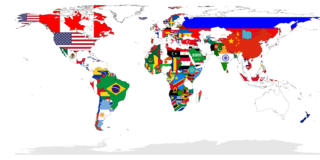Cognition
Do We Wear Different Thinking Caps?
Differences between Eastern and Western thinking styles influence behavior.
Posted May 21, 2021 Reviewed by Devon Frye
Key points
- Cross cultural research has compellingly demonstrated that reliable differences between Eastern and Western thinking styles exist.
- Variance between Eastern and Western countries is not only limited to thinking styles but also is observed in terms of other cognitive abilities.
- Accounting for these cognitive differences between different cultures is important to obtain a more accurate understanding of human behavior.
If both Westerners and Easterners were shown a picture of someone tall intimidating someone smaller (without any other additional information), research suggests that Westerners are more likely to think that the behaviour reflects something essential and fixed about the tall person: “He is probably a nasty person.” On the other hand, Easterners are more likely to think that maybe other things are going on between them: “Maybe the tall person is the boss or the father of the small man,” (Joseph Henrich, University of British Columbia).
One type of thinking style is usually dominant in different cultures. Analytical thinking is the most dominant in the West. This thinking style can be understood as a type of rule-based reasoning. It is characterized by a focus on attributes of individual objects and based on the assumption that objects can be understood independently of their contexts. On the other hand, Eastern cultures tend to use dialectical thinking, which is characterized by a strong attention to context and relationships. In this type of thinking, the objects are viewed as a part of the larger system and not as independent entities.
Westerners are more likely to view themselves as individualistic, egocentric, and discrete from society, whereas Easterners are more inclined to view themselves as collectivistic, socio-centric, and related to others or society. This in turn might affect their thinking styles. Moreover, cultural differences in cognition can be explained by the social-orientation hypothesis, wherein ways of thinking can be reinforced by prevalent social patterns in a given culture.

East Asians, who belong to a predominantly collectivistic society, hold interdependent self-construals and tend to believe in situationist theories of behavior (in which a behavior is deemed to be the result of the situation and it's assumed that anyone would react similarly in the same situation). On the other hand, Westerners, who usually belong to an individualistic society, tend to hold independent self-construals and dispositionist theories of behavior (in which a behavior is believed to be the cause of a personality trait).
It has been shown that construals of suffering may also be affected by culture-specific ways of thinking. A study on how the COVID-19 pandemic affected the career development of individuals, for example, mentioned that the choice in using coping strategies to deal with stressors associated with the pandemic has also been associated with the cultural divergence in thinking styles.
Rothbaum et al. (1982) has shown that people either choose primary control (directly solving the primary problem) or secondary control strategies (accommodating and reappraising the existing problem). Westerners are more likely to use primary control strategies and Easterners, due to their dialectical thinking style, tend to have greater coping flexibility. Specifically, this is associated with a tendency to use a balanced approach to rely on primary, secondary, or avoidant coping. This helps explain the high levels of resilience, or even optimism, of Easterners when facing difficult situations (De Vaus et al., 2018).
Another study has found that there are differences in the anticipation of climate change among individuals of different cultures. Chinese participants represented people from cultures that promote dialectical thinking, and North American participants represented individuals from cultures that use linear thinking. The former were more likely to anticipate a stable trend and less likely to anticipate an increasing trend in future climate change as compared to the North American participants. Culture can thus shape people’s response to climate change and environmental issues. According to the authors of the study, climate change educational programs should also incorporate cross-cultural perspectives so that the interpretation is not biased by the influence of culture.
Apart from thinking styles, a study showed how culture shapes one's views about themselves and others at a neural level. Native Chinese and Western participants were asked to decide if a particular trait described themselves or their mother. When Chinese participants were thinking about themselves and their mother, for both the cases, their same brain region (medial prefrontal cortex) was active. However, for Western participants, the medial prefrontal cortex was activated only during self-judgments..

Differences between the East and the West thinking styles have compellingly demonstrated that the cultural divide does exist. In contrast to analytic, focal, and linear thinking that is prevalent in the West, Easterners prefer to engage in more holistic, contextual, and intuitive thinking. This in turn affects one’s perception and behavior.
Evidence shows that most individuals in the world think more dialectically than those in Western countries. This wide cultural gap is found not just in terms of thinking styles but also, in various other cognitive aspects like perception, cooperation, and spatial and moral reasoning, to give a few examples. Thus, representing this “cultural mosaic” in research studies is important to account for the differences in human cognition and behavior found across the world.
This post was written by Nikita Mehta, a Junior Research Assistant at the Department of Psychology at Monk Prayogshala, India. She has completed her Master’s in Clinical Psychology from the University of Mumbai, India. Her interests lie in cognitive, evolutionary, and conservation psychology.




